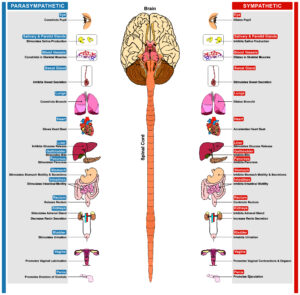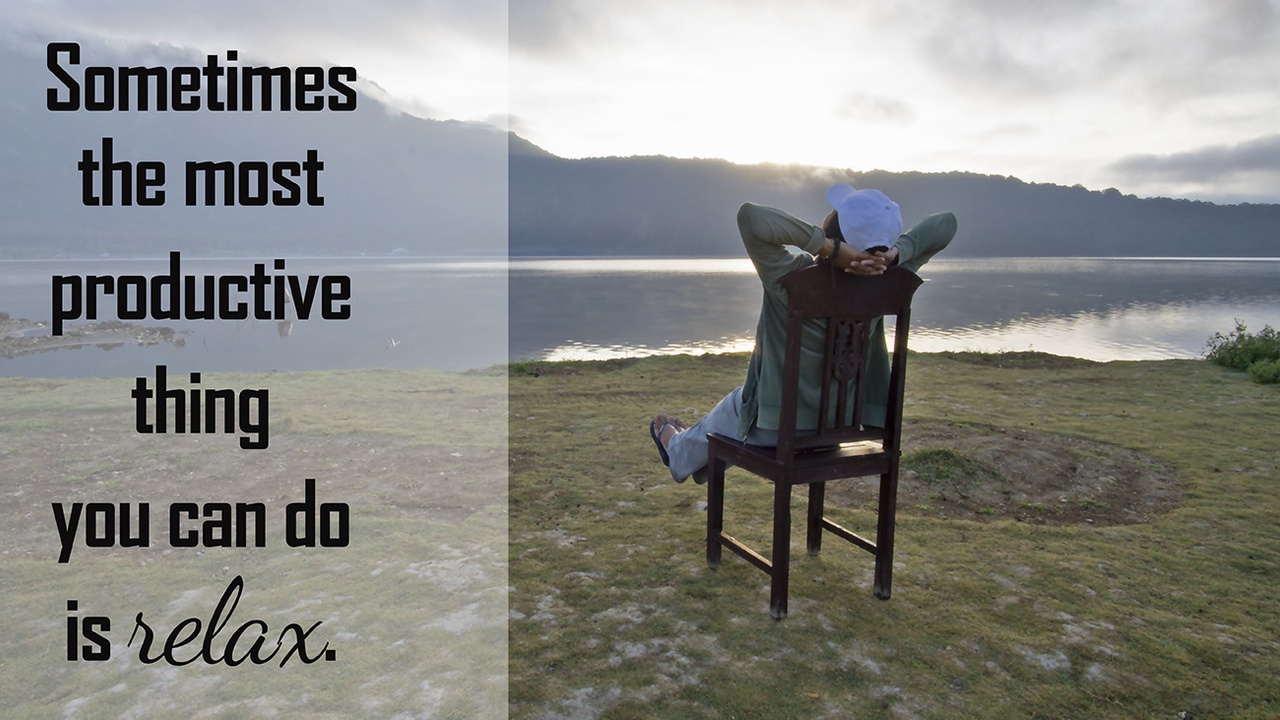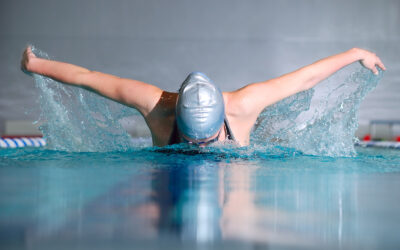
The Autonomic Nervous System subdivided into Sympathetic and Parasympathetic effect of each one on different human body organs including eye heart lung stomach intestine liver kidney bladder glands[/caption]
| Stress-Response (fight-or-flight) | Relaxation Response |
|---|---|
| Increases Heart Rate | Decreases Heart Rate |
| Increases Blood Pressure | Decreases Blood Pressure |
| Increases Breathing Rate | Decreases Breathing Rate |
The good news–both responses are equally powerful and innate. This means you can voluntarily energize either nervous system though your thoughts and actions. Unfortunately, in our modern fast-paced, deadline driven culture the stress-response is triggered while the relaxation response is shut down.
Harvard physician, Herbert Benson M.D. introduced the Relaxation Response over 30 years ago. According to Benson, Western society devalues the importance of relaxation and idealizes work. Consequently, the norm is to be stressed. Relaxation takes awareness and deliberate attention.
In his words…
“Unlike the flight-or-fight response, which is repeatedly brought forth as a response to our everyday situations and is elicited without conscious effort, the relaxation response can be evoked only if time is set aside and conscious effort is made.”
Four Basic Elements to Invoke the Relaxation Response
- Quiet Environment
- Mental Device
- Passive Attitude
- Comfortable Position
Although a quiet environment and comfortable position are self explanatory the other two elements, mental device and passive attitude need more explanation. Additionally, these two elements are also the most important and essential. The Relaxation Response has been achieved while moving and in busy, noisy settings.
Mental Device
To keep your mind on the present moment a sound, word or phrase can be repeated silently or aloud. This helps to keep thoughts from distracting your attention. Having your eyes closed assists focus by eliminating visual stimuli. Your mental device may also be an object, in which case your eyes are open and you hold the item in a constant gaze. Natural deep breathing can be incorporated with using your mental device and will assist in relaxation.
Passive Attitude
Don’t judge yourself on how well you are doing the Relaxation Response or worry that you’re not doing it right. This may prevent you from achieving your goal. Benson advises to just “let it happen.” It is common for unwanted thoughts to surface while trying to relax. When they do simply let them go and return to using your mental device.
Benson recommends practicing the Relaxation Response for 10-20 minutes once or twice daily. I am still working up to this level. Since I don’t yet have a good personal story about using the Relaxation Response yet I’ll leave you with a testimonial from Benson’s book.
“The Relaxation Response has contributed to many changes in my life. Not only has it made me more relaxed physically and mentally, but also it has contributed to changes to my personality and way of life. I seem to have become calmer, more open and receptive especially to ideas which either have been unknown to me or very different from my past way of life. I like the way I am becoming; more patient, overcoming some fears especially around my physical health and stamina. I feel stronger physically and mentally. I take better care of myself. I am more committed to my daily exercise and see it as an integral part of my life. I really enjoy it too! I drink less alcohol, take less medication. … I feel happier, content, and generally well when I use the Relaxation Response.”
Reference: The Relaxation Response, Herbert Benson, M.D.



